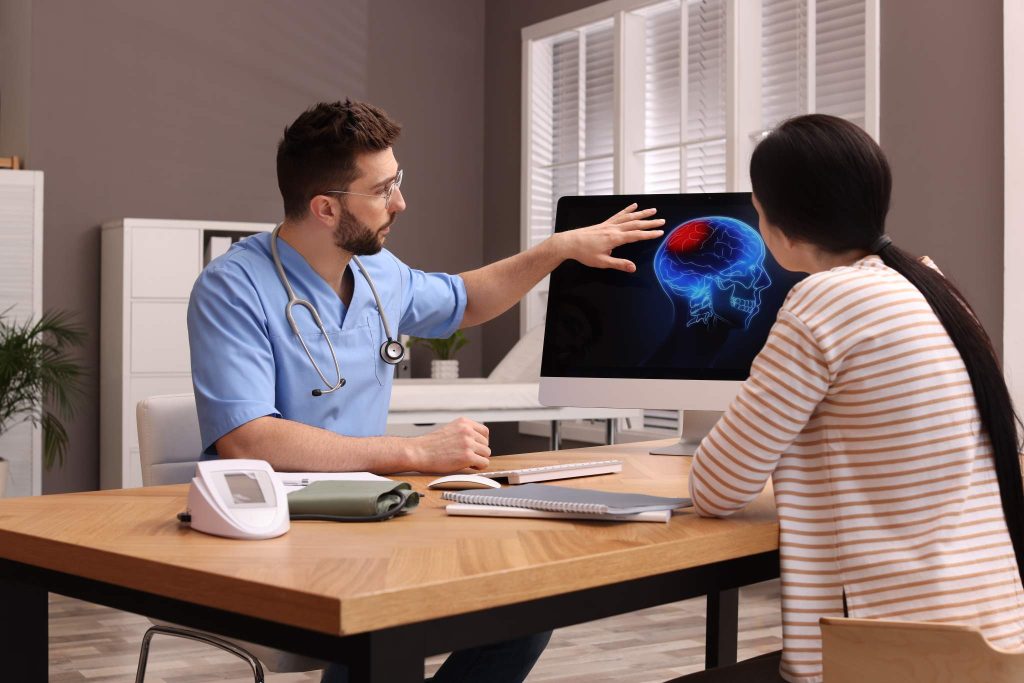Whiplash is a prevalent injury, especially following car accidents. Despite its common occurrence, the understanding of whiplash, its onset, and symptoms can be somewhat elusive. Many wonder, how long does it take for whiplash to set in? The onset of symptoms can vary significantly from person to person, with some experiencing immediate discomfort, while others may not notice symptoms for hours, days, or even weeks after an incident. This variability underscores the importance of monitoring your health closely after any event that could cause whiplash to ensure proper identification and whiplash treatment.
What is Whiplash and How Does It Occur?
Whiplash occurs when the head is suddenly jerked forward and backward, exceeding the neck’s natural range of motion. This type of injury is common in car crashes, sports injuries, or falls. The rapid movement can stretch or tear the neck’s muscles, ligaments, and in severe cases, can affect nerves or spinal discs. The mechanism of whiplash is a stark reminder of the body’s vulnerability during such violent, unexpected movements.
Does Whiplash Happen Straight Away?
While the physical mechanics of whiplash happen instantaneously during the impact, the onset of symptoms can happen both immediately or delayed. Most cases of whiplash will begin to appear within the first 24 hours. The rapid movement strains or tears the neck’s tissues, potentially damaging nerves, muscles, tendons, and ligaments. In some instances, the immediate release of adrenaline and the body’s shock response can temporarily mask pain, leading to a delay in symptoms. This delay can range from 72 hours after the event up to weeks.
Understanding Whiplash Signs
Identifying the signs of whiplash early can be key to seeking appropriate treatment and avoiding long-term complications. The primary indicators include neck pain and stiffness, which can range from mild to severe.
Whiplash Symptoms Include
- Limited neck movement and stiffness
- Shoulder pain and stiffness
- Arm discomfort
- Headaches starting at the base of the neck
- Neck muscle spasms
- Mood changes, such as irritability or anxiety
- Fatigue and sleep disturbances
- Concentration or memory problems
- Dizziness and blurred vision
- Tinnitus (ringing in the ears)
Delayed Signs of Whiplash
In addition to immediate symptoms, there are delayed signs of whiplash to be aware of. These symptoms can surface hours, days, or even weeks after the incident. They include persistent neck pain, increased headaches, dizziness, blurred vision, and difficulties with concentration or memory. Recognizing these delayed symptoms is essential for seeking timely whiplash treatment.
Seeking Proper Whiplash Treatment
Regardless of the severity of your symptoms, seeking medical attention promptly ensures the best possible outcome. A thorough examination by a healthcare professional can rule out other injuries and tailor a treatment plan that addresses both immediate discomfort and long-term healing.
The approach to whiplash treatment often involves a blend of at-home remedies, such as applying heat or ice, paired with guided exercises from physical therapists designed to reinforce neck muscle strength. Although you’ll be advised to steer clear of vigorous activities, maintaining a degree of movement is important for the neck’s recovery of strength. Contrary to common misconceptions, neck braces are typically discouraged as they can impede the healing process by restricting the strengthening of muscles that is necessary for recovery. Neglecting even mild symptoms or postponing treatment could escalate into chronic whiplash, leading to enduring pain and limitations in mobility.
If you suspect whiplash, seek immediate, specialized treatment from AICA Orthopedics’s team of doctors to prevent your condition from worsening. Find your nearest AICA clinic today to start your journey to recovery with our expert team’s state-of-the-art care today.





